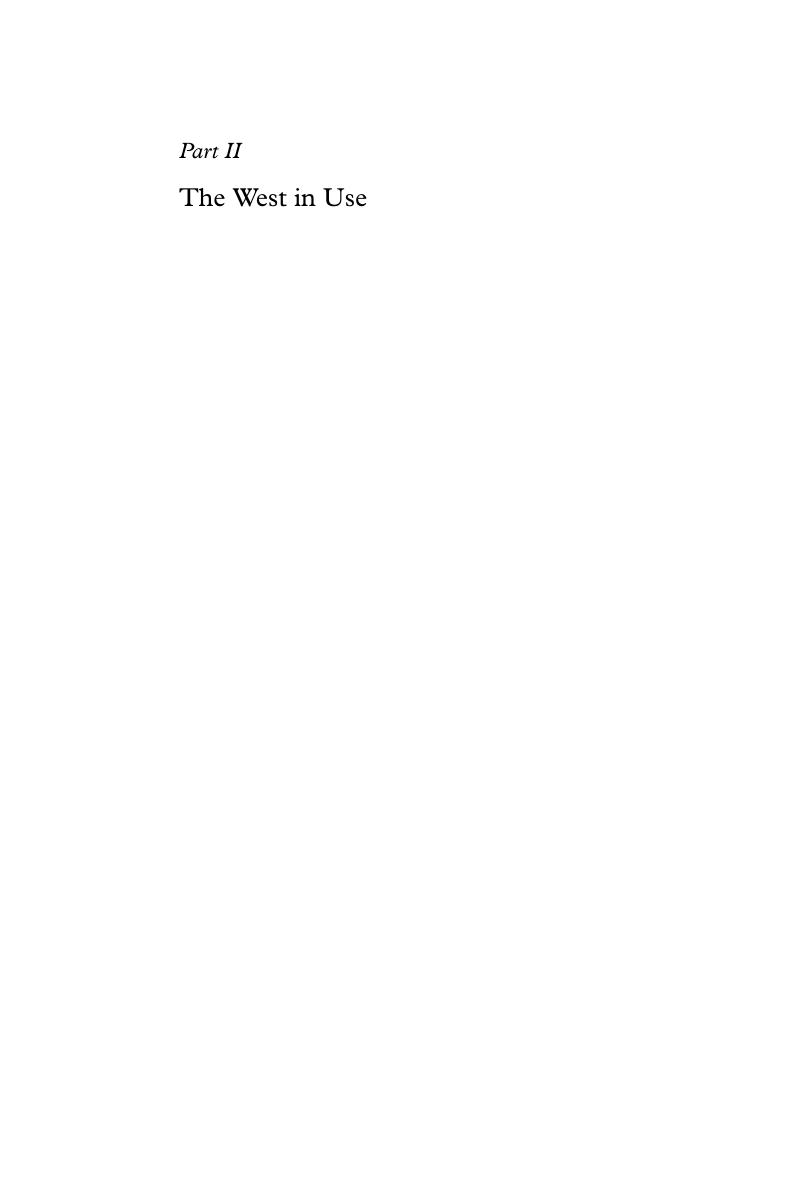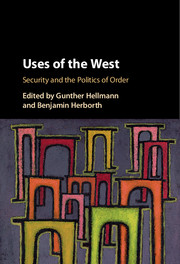Part II - The West in Use
Published online by Cambridge University Press: 20 January 2017
Summary

- Type
- Chapter
- Information
- Uses of 'the West'Security and the Politics of Order, pp. 109 - 228Publisher: Cambridge University PressPrint publication year: 2016



